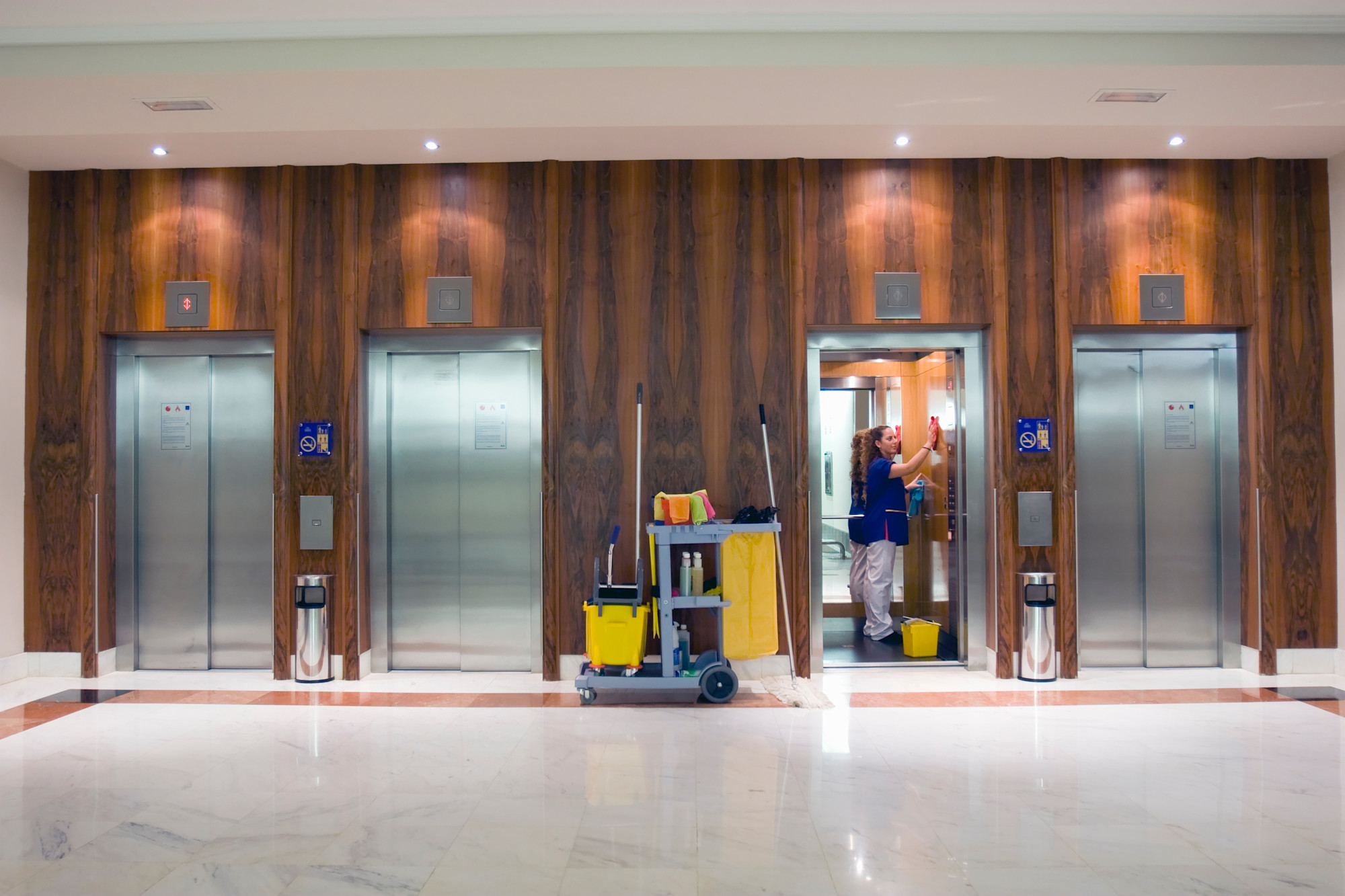The cleaning industry is booming.
The global cleaning services market was valued at USD 370.56 billion in 2022 and is projected to grow at a CAGR of 6.6% through 2030.
The main drivers are post-pandemic hygiene awareness, the commercial real estate market expansion, and increased outsourcing of cleaning services by businesses. In 2023, the U.S. commercial cleaning services market was valued at approximately $75.3 billion, with projections indicating continued growth in the coming years.
Choosing the right business model is vital to capitalizing on these opportunities. This guide will walk you through various cleaning business models to help you make an informed decision.
What is a cleaning business model?
A cleaning business model is the structure and strategy for how a cleaning company delivers services, attracts customers, generates revenue, and sustains growth.
A suitable business model should:
Streamline scheduling, billing, and customer management for a smooth workflow.
Match services to customers’ needs, whether janitorial services, commercial cleaning, residential cleaning, or specialized services like carpet cleaning.
Optimize pricing structures, reduce startup costs, and increase profit margins by focusing on cost-effective solutions.
Allows cleaning business owners to add services, add new customers, and grow into new markets.
Choosing the right business model can turn a small cleaning business into a big one.
What are the different types of cleaning business models?
There are three different types of cleaning models:
Commercial cleaning: Caters to businesses, offices, and commercial properties. It involves cleaning large spaces like offices and hospitals and requires specialized equipment and training.
Specialty cleaning: Offers niche services like carpet cleaning, window cleaning, and eco-friendly cleaning.
Residential cleaning: Focuses on home cleaning for individual homeowners.
Commercial cleaning business model
This model involves cleaning services for businesses, office buildings, retail stores, and other commercial properties. Offering office cleaning—including cleaning, janitorial services, and even property maintenance—as part of a commercial cleaning package can attract more customers.
The commercial cleaning model will likely require liability insurance to comply with local laws and protect the business owner and their clients. Working in clients’ commercial properties involves risks; liability insurance is a must to safeguard assets and operate legally.
Who it is for: Larger cleaning companies that can handle more extensive projects. It’s for those who want to get long-term contracts and stable income.
Target market: Businesses, office complexes, medical facilities, schools, and retail spaces that require regular cleaning services.
Services: This includes general cleaning tasks like floor care, window cleaning, restroom sanitation, trash removal, and specialized services like disinfection, carpet cleaning, and post-construction cleanup.
Pros of the commercial cleaning model:
Higher profit margins
Long-term contracts
Regular, predictable income
Cons of the commercial cleaning model:
Higher startup costs and initial investment
More staff and equipment required
Stricter health and safety regulations. Limited liability and insurance coverage are a must for these service providers.
Specialty cleaning services business model
Specialty cleaning focuses on niche areas that require specific expertise and equipment—services like high-rise window cleaning and eco-friendly cleaning target niche markets.
Who it is for: This model is for those who want to offer unique services or have expertise in a specific type of cleaning. It’s also for businesses that want to differentiate themselves with their commercial cleaning services.
Target market: Homeowners and businesses that require specialized cleaning services and high-quality cleaning solutions, those with high-value carpets, large windows, or a focus on sustainability.
Services: Carpet cleaning, stain removal, upholstery, high-rise window cleaning, eco-friendly products, and specialized disinfecting services.
Pros of the specialty cleaning services business model:
Less competition in niche markets
Can charge premium rates
Flexibility to adapt services
Cons of the specialty cleaning services business model:
Requires specialized training and equipment
Smaller customer base
Higher marketing costs to reach specific clients
Often need more upfront startup costs (specialized cleaning equipment)
Residential cleaning business model
The residential cleaning business model involves providing cleaning services directly to homeowners.
This model is perfect for new businesses as a low-cost startup option for entering the market.
Who it is for: Ideal for small business owners and entrepreneurs who want to start with minimal investment.
Target market: Homeowners, busy professionals, dual-income families, and elderly individuals who need help with house cleaning. The house cleaning service offers many benefits, including time savings and clean homes.
Services: General cleaning tasks like dusting, vacuuming, mopping, bathroom cleaning, kitchen sanitizing, and sometimes deep cleaning services.
Pros of the residential cleaning business model:
Low startup costs
High demand and potential for repeat clients
Flexible work hours
Cons of the residential cleaning business model:
Lower profit margins
High client turnover
Seasonal fluctuations in demand
Franchise vs. independent cleaning business models
Entrepreneurs must choose between a franchise and an independent cleaning business model. Each has pros and cons that affect startup costs, brand recognition, and operational control. Franchises provide a complete marketing plan for new business owners.
Franchise cleaning business model
A franchise cleaning business model allows entrepreneurs to operate under an established brand name. The franchisor provides franchisees training, marketing support, and access to proven systems.
Benefits:
Established brand recognition
Access to training, resources, and marketing support
Easier access to financing
Challenges:
Ongoing fees
Less operational freedom and creativity
Strict adherence to the franchisor’s rules and guidelines
Independent cleaning business model
An independent cleaning model controls business operations, brand name, and services. Entrepreneurs build the business from scratch.
Benefits:
Complete control over business decisions
No upfront franchise fees
Flexibility to innovate and offer unique services
Challenges:
More effort in marketing and brand building
No initial support and established systems
Higher risk and responsibility for business success
Your choice between a franchise and an independent business model depends on your level of control, support, and brand recognition. Both have advantages, and the right choice will align with your long-term goals.
What are the key strategies for success in a cleaning business?
Success in the cleaning industry depends on implementing strategies that optimize operations, customer satisfaction, and profitability.
Cleaning business owners can grow profits in their operations by focusing on key areas like:
Scheduling
Customer relationship management
Marketing
Financial management
Quality control
Employee training
Specialized tools
Using business management software built for the cleaning industry, like Aspire, can simplify operations, organize and improve marketing efforts, and ultimately give the cleaning business the tools it needs to navigate competitive markets with ease.
1. Efficient scheduling and dispatch
Proper scheduling means teams are deployed correctly, minimizing downtime and maximizing productivity.
Tips for optimizing schedules:
Use digital scheduling tools.
Create a visual schedule that can be adjusted quickly.
Plan routes to reduce travel time and increase efficiency.
Tools for managing dispatch:
Use Aspire’s scheduling software.
Drag and drop to create and edit schedules.
Switch between week and month views to see capacity.
Push schedule updates to the Aspire Mobile app to keep teams informed.
Using automation in scheduling tasks to increase efficiency and reduce errors.
Scheduling and dispatch allow your cleaning company to do more work and reduce costs, improving customer satisfaction and profits.
2. Customer relationship management
Building and maintaining good client relationships is crucial to customer retention and business growth. Good CRM means understanding client needs, addressing concerns, and providing personal service.
Strategies for customer retention:
Communicate with clients regularly to understand their needs.
Have a system for collecting and responding to feedback.
Offer loyalty programs and discounts for long-term clients.
Building partnerships and maintaining good relationships with potential clients is critical to growth
Tools for CRM:
Use Aspire’s CRM software to see the customer journey.
Integrate email to streamline communication.
Store historical records to personalize service and build loyalty.
A good CRM system improves customer satisfaction and attracts repeat business and referrals, which is vital to a successful cleaning business.
3. Effective marketing strategies
A good marketing strategy is needed to attract new clients and retain existing ones. Use online and local marketing to increase your visibility and reputation in the cleaning industry.
Enhancing online presence:
Create a website that is easy to use, shows services, and appears in local search results (SEO).
Optimize the website for local search terms like "cleaning services" and "cleaning company."
Engage with potential clients on social media.
Do your market research to develop a marketing plan targeting potential customers.
Tools for integrated marketing:
Use Aspire’s Marketing Pro to create targeted direct and email campaigns
Offer referral incentives to encourage word-of-mouth marketing.
Distribute business cards and flyers in target areas.
A good marketing strategy increases brand awareness, gets new customers, and positions you in the cleaning market.
4. Financial management and pricing strategies
Setting prices and managing finances well means safeguarding profit margins on every job and positioning yourself for long-term success.
Setting competitive Prices:
Research the market to understand local pricing.
Consider cleaning supplies, equipment, and labor costs.
Offer flat rates or hourly rates.
Offer additional services like deep cleaning or carpet care to create new revenue streams.
Managing finances efficiently:
Use Aspire’s cleaning job costing software.
Automate cost tracking and get real-time reports.
Analyse profit by branch, crew, or project to fine-tune pricing and budgeting.
Sound financial management keeps cleaning businesses competitive, reduces unnecessary expenses, and maximizes profit.
5. Quality control and customer satisfaction
Implementing quality control and gathering feedback can improve service standards.
Ensuring high-quality service:
Create service standards and checklists for cleaning teams.
Inspect completed jobs to ensure they meet quality expectations.
Provide ongoing training to keep staff up to date with best practices.
Ensure your cleaning teams have the right tools, like an offline-capable mobile app with job details, reliable equipment, and the best cleaning products.
Gathering and utilizing customer feedback:
Use Aspire’s cleaning crew management software for communication.
Sync job checklists instantly to the Aspire Mobile app and track hourly time for accountability.
Use GPS tracking and geo-fenced clock-in/out for operational transparency.
Quality control builds trust with clients, which means repeat business and word-of-mouth referrals.
6. Employee training and retention
Invest in training programs and retention strategies to increase job satisfaction and reduce turnover.
Importance of training programs:
Provide full onboarding training for new staff and safety in handling cleaning equipment and chemicals.
Offer training sessions to upskill and improve service delivery.
Focus on areas like safety procedures, equipment use, and customer service.
Strategies for retaining top talent:
Offer competitive pay and benefits to attract good workers.
Create a positive work environment that encourages growth and teamwork.
Recognize and reward outstanding performance for boosting morale.
Good employee training and retention means a more reliable workforce and consistent service.
7. Specialized tools and technologies
Using specialized tools and technology can streamline your business and improve overall efficiency. Aspire helps you manage multiple aspects of your cleaning business in one platform with processes for:
Scheduling and dispatch: Simplifies job assignments and updates.
Customer management: Enhances CRM capabilities for better client relationships and complete sales pipeline visibility.
Billing and invoicing: Streamlines financial processes and ensures accurate billing.
Reporting and analytics: Provides insights into business performance.
Mobile app access: Allows on-the-go access for management and cleaning crews with three-way client communication.
Integration capabilities: Facilitates seamless integration with other business tools.
Using Aspire’s end-to-end business management tools allows cleaning business owners to operate more efficiently, provide better customer service, and grow faster.
For more on running a successful cleaning business, check out How to Start a Cleaning Business and Cleaning Business Profit Margins.
It’s your turn now
This guide covered the three major business models for new cleaning businesses—residential, commercial, and specialty services—as well as the must-have tools for success, such as scheduling, customer relationships, marketing, and quality control.
Learn more about growing your cleaning business or book a free demo with Aspire today.










